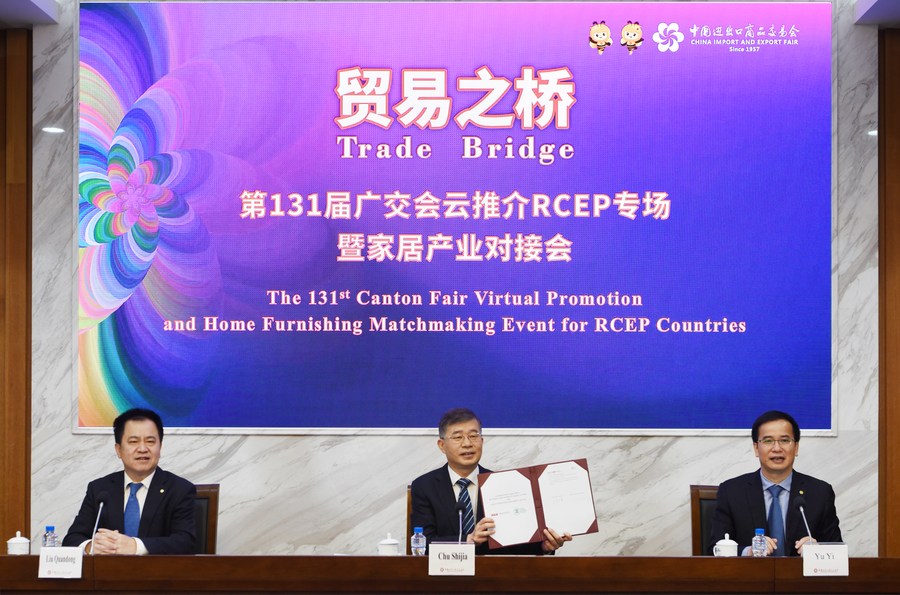
The 131st Canton Fair Virtual Promotion and Home Furnishing Matchmaking Event for RCEP Countries is held in Guangzhou, south China's Guangdong Province, April 19, 2022. (Xinhua)
GUANGZHOU, Jan. 1 (Xinhua) -- Guangzhou Customs in south China's Guangdong Province issued over 14,000 certificates of origin for goods worth a total of 4.75 billion yuan (about 682 million U.S. dollars) under the Regional Comprehensive Economic Partnership (RCEP) free trade agreement during the first 11 months of 2022.
During the period, enterprises declared imports totaling 5.4 billion yuan under the RCEP to Guangzhou Customs, bringing the total worth of goods that benefited from the RCEP in Guangzhou alone to over 10 billion yuan, the customs office said.
Certificates of origin are documents widely used in international trade transactions. They state that the products listed have met sufficient criteria to be considered as originating in a particular country. The issuance of these certificates is widely regarded as a barometer of foreign trade.
Since the RCEP agreement took effect on Jan. 1, 2022, enterprises have welcomed lower import costs and more export opportunities. "With the help of the certificates of origin issued by customs, the tariff rate of our exports to Japan has been lowered from 20 percent to 14 percent, improving the competitiveness of our products," said Jiang Huimei, chief financial officer of ITP Zhengxiong Bags (Heyuan) Co., Ltd.
"In 2022, our orders saw a year-on-year increase of about 60 percent. We are producing goods at full speed to meet the needs of customers," Jiang added.
Since the beginning of 2022, the customs office at Guangzhou Baiyun Airport has also supervised imports of durians, nectarines, cherries, mangosteens and other fruits from RCEP members, which totaled more than 440 million yuan, a more than twofold increase year on year.
To ensure the freshness of the imported fruits, Guangzhou Customs has optimized its supervision processes, established green channels to speed up the clearance of seasonal fruits. "We have set up a special window for RCEP cargo clearance. In general, fresh fruits can be inspected and released on the same day they arrive," said Zhu Jingyi, who works at the airport's customs office.
The RCEP includes 10 ASEAN members, China, Japan, the Republic of Korea, Australia and New Zealand. The total population, total gross domestic product and total trade of the 15 countries account for about 30 percent of the global total.




 A single purchase
A single purchase









